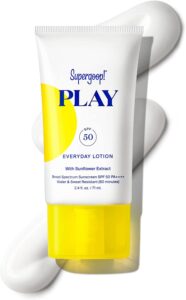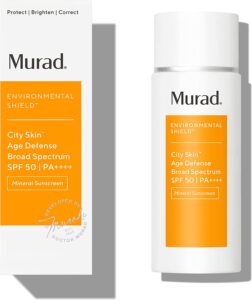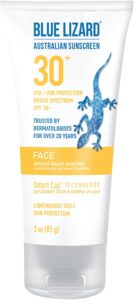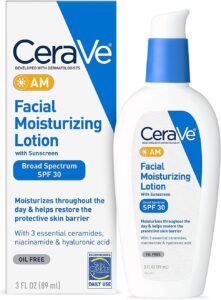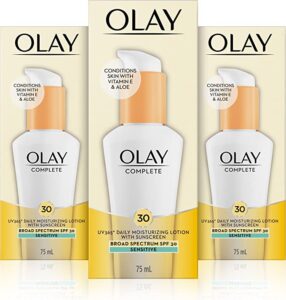Disclaimer : I am not a dermatologist, the information is from my own reading and research.
All about Sunscreen.
Sunscreen is an essential part of any skincare routine, no matter your skin type or tone. It helps to protect your skin from the harmful UV rays of the sun, which can cause a range of issues from premature aging to skin cancer. When choosing a sunscreen, look for one that offers broad-spectrum protection, which means it protects against both UVA and UVB rays. You should also choose a sunscreen with an SPF of at least 30, which will offer adequate protection for most people. When it comes to choosing a sunscreen, there are two main types: physical and chemical. Here’s what you need to know about the importance of sunscreen and the difference between physical and chemical sunscreens.
Importance of Sunscreen
-
Protects against skin cancer: Sunscreen is a crucial part of protecting your skin against the development of skin cancer. Skin cancer is the most common form of cancer in the United States, and it’s often caused by exposure to UV rays from the sun. Using sunscreen daily can help prevent this deadly disease.
-
Prevents premature aging: Sun damage can cause premature aging, including wrinkles, fine lines, and age spots. UV rays can damage the collagen in your skin, which can lead to sagging and wrinkles. Sunscreen can help prevent these signs of aging and keep your skin looking youthful and radiant.
-
Helps to prevent sunburn: Sunburn is not only uncomfortable, but it can also cause long-term damage to your skin. Sunscreen can help to prevent sunburn by blocking the harmful UV rays that cause it.
-
Reduces the risk of skin discoloration: Exposure to the sun can also cause skin discoloration, including dark spots and uneven skin tone. Wearing sunscreen daily can help prevent these issues and keep your skin looking even and smooth.
-
Provides extra moisture: Many sunscreens also contain moisturizing ingredients, which can help keep your skin hydrated and healthy. This is especially important during the dry winter months, when your skin is more prone to dryness and cracking.
Differences Between Chemical and Physical Suncreen.
Chemical Sunscreens
Chemical sunscreens work by absorbing the sun’s UV rays and converting them into heat, which is then released from your skin. Chemical sunscreens contain organic compounds, such as oxybenzone or avobenzone, that work to protect your skin. They tend to be lighter and easier to apply than physical sunscreens, which can make them a popular choice for everyday use.
One of the benefits of chemical sunscreens is that they tend to be more cosmetically elegant, which means they’re easier to blend into your skin without leaving a white cast. However, they can take up to 30 minutes to start working, so it’s important to apply them before you go outside. Chemical sunscreens can also cause skin irritation in some people, so it’s important to test them on a small patch of skin before applying them all over your body.
As an Amazon Associate I earn from qualifying purchases.
I am not a dermatologist and not an expert in the skincare industry. The tips I share are based on my research and my own skincare routine.
Sun screen - Chemical
Physical / Mineral Sunscreens
Physical sunscreens work by reflecting the sun’s UV rays away from your skin. They contain mineral-based ingredients, such as zinc oxide or titanium dioxide, which create a physical barrier on the surface of your skin. This barrier helps to deflect the UV rays away from your skin, reducing the amount of radiation that penetrates it. Physical sunscreens are often recommended for people with sensitive skin or those who are allergic to chemical sunscreens.
One of the benefits of physical sunscreens is that they start working as soon as you apply them to your skin. They also tend to be more water-resistant than chemical sunscreens, so they’re a great choice if you’ll be spending a lot of time in the water. However, physical sunscreens can be thicker and more difficult to rub in, which can make them feel heavy on your skin.
Physical / Mineral Sunscreen
Combination Sunscreens
Combination sunscreen, also known as hybrid sunscreen, is a type of sunscreen that offers both chemical and physical protection against the sun’s harmful rays. This type of sunscreen contains both organic and inorganic compounds, providing a more comprehensive level of protection than traditional sunscreens.
Combination sunscreens combine both physical and chemical ingredients to provide a broad-spectrum level of protection against both UVA and UVB rays. The physical ingredients in combination sunscreens help to immediately protect the skin, while the chemical ingredients work to absorb UV rays deeper into the skin.
There are several benefits to using combination sunscreen. One of the main advantages is that it provides more comprehensive protection than either physical or chemical sunscreen alone. This is particularly important for individuals with sensitive skin or those who spend a lot of time outdoors in direct sunlight


